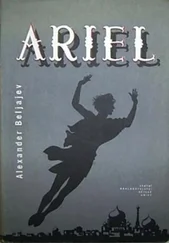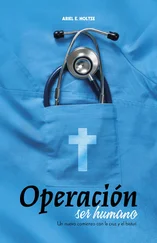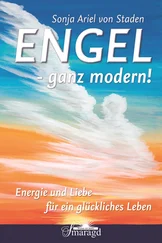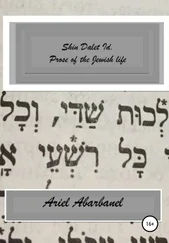Ariel Toaff - Blood Passover
Здесь есть возможность читать онлайн «Ariel Toaff - Blood Passover» весь текст электронной книги совершенно бесплатно (целиком полную версию без сокращений). В некоторых случаях можно слушать аудио, скачать через торрент в формате fb2 и присутствует краткое содержание. Жанр: Религиоведение, на английском языке. Описание произведения, (предисловие) а так же отзывы посетителей доступны на портале библиотеки ЛибКат.
- Название:Blood Passover
- Автор:
- Жанр:
- Год:неизвестен
- ISBN:нет данных
- Рейтинг книги:3 / 5. Голосов: 1
-
Избранное:Добавить в избранное
- Отзывы:
-
Ваша оценка:
- 60
- 1
- 2
- 3
- 4
- 5
Blood Passover: краткое содержание, описание и аннотация
Предлагаем к чтению аннотацию, описание, краткое содержание или предисловие (зависит от того, что написал сам автор книги «Blood Passover»). Если вы не нашли необходимую информацию о книге — напишите в комментариях, мы постараемся отыскать её.
Blood Passover — читать онлайн бесплатно полную книгу (весь текст) целиком
Ниже представлен текст книги, разбитый по страницам. Система сохранения места последней прочитанной страницы, позволяет с удобством читать онлайн бесплатно книгу «Blood Passover», без необходимости каждый раз заново искать на чём Вы остановились. Поставьте закладку, и сможете в любой момент перейти на страницу, на которой закончили чтение.
Интервал:
Закладка:
526
Cfr. Divina, Storia del beato Simone da Trento , cit., vol. II, pp. 16-32.
527
"Et (Thobias) dicit quod quando dictus paterfamilias dixit suprascripta verba, postea etiam addit hec alia: "Ita imprecamur Deum quod similiter immittat suprascriptas decem maledictiones contra gentes quod adversantur fidei Iudaice", intelligendo maxime contra Christianos" [“And Tobias said that when the head of the family said the above mentioned words, after that he added the following, among other things: “Thus we call upon God similarly to inflict the above mentioned curses against the Gentiles (or people) who are enemies of the Jewish faith’, meaning, most of all, against the Christians”] (cfr. Esposito and Quaglioni, Processi, cit., voI. I, p. 326).
528
"Et que verba postea quem dicta sunt per patremfamilias, idem paterfamilias dicit hec alia verba: 'lta nos deprecamur Deum quod immittat omnes predictas maledictiones contra eos qui sunt contra fidem Iudaicam', intelligendo et imprecando quod dicte maledictiones immittantur contra Cristianos" [“And that after the head of the family said these words, he said these other words: ‘Thus we pray God that He may inflict all these curses on those who are enemies of the Jewish faith’, meaning and praying that these curses would befall the Christians“] (cfr. ibidem, p. 352). In the light of the Hebrew sources, such as Maharil and Shalom da Wiener Neustadt, who testify to the ancient custom of the Ashkanazi Jews of cursing the Christians during the recitation of the ten plagues of Egypt, W.P. Eckert is therefore in error on this point ( Motivi superstiziosi nel processo agli ebrei di Trento , in I. Rogger and M. Bellabarba, Il principe vescovo Johannes Hinderbach, 1465-1486, fra tardo Medioevo e Umanesimo , Atti del Convegno held by the Biblioteca Comunale of Trent, 2-6 October 1989, Bologna, 1992, pp. 393-394) considers this to be a truth presumed by the Trent judges and suggested to the defendants by coercive means.
529
Cfr. Morosini, Derekh Emunah. Via della fede mostata agli ebrei , cit., p. 559.
530
"Et hiis dictis, paterfamilias accipit dictas fugatias et unamquamque dividit de unaquaque fugatia partem suam unicuique, et deinde ipse paterfamilias bibit vinum quod est in ciato suo, et similiter alii astantes bibunt vinum suum et postmodum omnes cenant, et similiter faciunt die sequenti de sero" (cfr. Esposito and Quaglioni, Processi , cit., voI. I, pp. 252-253).
531
"Et post suprascripta paterfamilias accipit primam fugatiam que est in bacili, ut supra, et unicuique ex astantibus dat partem suam, et similiter facit de secunda et de tertia fugatia, dando partem suam unicuique. Et deinde accipit ciphum plenum vino [...] et illud vinum bibit; et deinde omnes alii circumstantes accipiunt ciatos suos plenos vino, ut supra, et unusquisque bibit de ciato suo, postque cenant orimes" (cfr. ibidem, pp. 326-327).
532
On the initial introduction of the curses of Shefoch into the text of the Haggadah of the medieval Ashkenazi environment, see, among others, M.M. Kasher, Haggadah Shelemah , New York, 1961, pp. 177-180; E.D. Goldshmidt, Haggadah shel Pesach , Jerusalem, 1969, pp. 62-64; R. Bonfil, Haggadah di Pesach , Milan, 1962, pp. 122-123 (" It may nevertheless be presumed that the custom became widespread during the Middle Ages, during the period of the first great persecutions, during the Crusades [...] during the period in which the first accusations of ritual murder were made against the Jews. The custom of opening the door [...] probably also dates back to that period, in which such an act was caused by the fear that behind the door there might be placed the body of some murdered child and that the murder might be blamed on the Jews").
533
In this regard, see, in particular, G.D. Cohen, Messianic Postures of Ashkenazim and Sephardim , in M. Kreutzberg, Studies of the Leo Baeck Institute, New York, 1967, pp. 117-158; Yuval, "Two Nations in Your Womb", cit., pp. 140-145; Safrai and Safrai, Haggadah of the Sages , cit., pp. 174-178.
534
"Et finita cena, paterfamilias dicit hec verba: Sfoch chaba moscho hol ha-goym . Similiter dicit quod fit in die sequenti de sero, post Pascha" [“And after dinner, the head of the family pronounces these words, Sfoch chaba moscho hol ha-goym. He does the same the evening of the following day, after Passover”] (cfr. Esposito and Quaglioni, Processi, cit., voI. I, p. 327). It should be noted that the Hebrew words are recorded by the Italian notary according to Tobias' Ashkenazi pronunciation, and therefore chamatechà , "da tua ira", is rendered as chamoschò (chaba moscho).
535
Cfr. [Bonelli], Dissertazione apologetica , cit., p. 149; Divina, Storia del beato Simone da Trento , cit., vol. II, p. 18. Even in the case of Israel Wolfgang, the formula of Shefoch , reported according to the Ashkenazi pronunciation, is distorted by the notary's record ( Sfoco hemosco hai hagoym honszlar lho ghedalsecho ), but seems entirely intelligible.
536
Cfr. Morosini, Derekh Emunah. Via della fede mostrata agli ebrei , cit., p. 559.
537
Cfr. Paolo Medici, Riti e costumi degli ebrei , Madrid, Luc'Antonio de Bedmar, 1737, p. 171.
538
"In vigilia Pasce sui, dum pinsatur pasta de qua postea faciant azimas, paterfamilias accipit de sanguine dicti pueri Cristiani et de illo sanguine ponit paterfamilias in pasta dum pinsatur, et sic ponitur et plus et minus prout paterfamilias habeat multum de sanguine predicto; et quod si poneret tantum quantum est unum granum lentis, sufficit; et quod sic paterfamilias ponit dictum sanguinem in pasta, aliquando videntibus illis qui pinsant panem (sc. pastam) et aliquando non; et quod si illi qui pinsant panem (sc. pastam) sunt persone fide, paterfamilias ponit sanguinem videntibus illis qui pinsant, et si non sunt fide ponit secrete" [Approximately: “On the eve of their Passover, when they are kneading the dough for the unleavened bread, the head of the family takes the blood of a Christian child and places some of it in the dough which they are kneading, in greater or lesser quantities according to whether the head of the family had a lot of it or not; and that if he adds as much a single lentil, it is enough; and that thus the head of the family places the said blood in the dough, sometimes those kneading the dough see him do it and sometimes he does it in secrecy”] (cfr. A. Esposito and D. Quaglioni, Processi contro gli ebrei di Trento, 1475-1478 . I: I processi del 1475 , Padova, 1990, pp. 251-252).
539
"Et dicit quod (Iudei) accipiunt sanguinem pueri Cristiani et illum faciunt coagulare et deinde illum exiccant et de eo faciunt pulverem, quem pulverem postea ponunt singulis annis in pasta azimarum, quas faciunt in vigilia Paschae sui, quas azimas postea comedunt in die solemni, videlicet in die Paschae eorum" [“And he said that (the Jews) take the blood of Christian boys and allow it to coagulate and they dry it and make a powder of it, and place it in the dough of the unleavened bread every year, on the eve of their Passover, and eat it on the solemn day, namely, during their Passover”] (cfr. ibidem, p. 318).
540
"(Iudei) ponunt (sanguinem) in azimis suis seu fugatiis, quas comedunt in festo Pasce sui" [“(The Jews) place (blood) in their unleavened bread, which they eat during their Passover feast”] (cfr. ibidem, pp. 378-379).
Читать дальшеИнтервал:
Закладка:
Похожие книги на «Blood Passover»
Представляем Вашему вниманию похожие книги на «Blood Passover» списком для выбора. Мы отобрали схожую по названию и смыслу литературу в надежде предоставить читателям больше вариантов отыскать новые, интересные, ещё непрочитанные произведения.
Обсуждение, отзывы о книге «Blood Passover» и просто собственные мнения читателей. Оставьте ваши комментарии, напишите, что Вы думаете о произведении, его смысле или главных героях. Укажите что конкретно понравилось, а что нет, и почему Вы так считаете.












